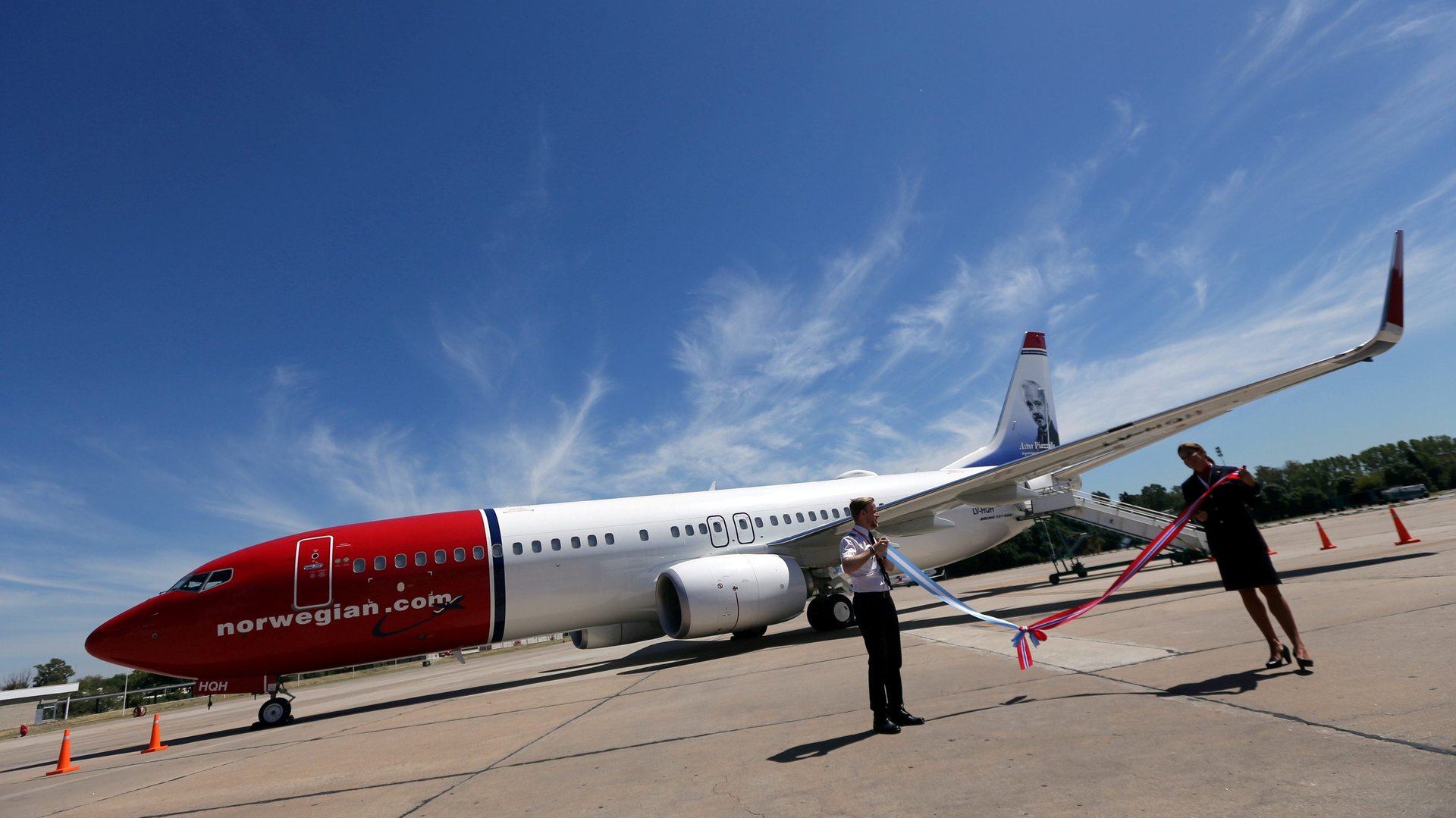Coronavirus has already sent one airline into bankruptcy, and plenty more are at risk
RIP, Flybe. After months of difficulty, the small British airline yesterday succumbed to the effects of Covid-19. In a widely-reported statement, the airline said that its financial challenges “compounded by the outbreak of coronavirus, which in the last few days has resulted in a significant impact on demand.” The 40-year-old budget carrier flew British tourists to regional destinations like Italy and France, and had its headquarters in Exeter, England.


RIP, Flybe. After months of difficulty, the small British airline yesterday succumbed to the effects of Covid-19. In a widely-reported statement, the airline said that its financial challenges “compounded by the outbreak of coronavirus, which in the last few days has resulted in a significant impact on demand.” The 40-year-old budget carrier flew British tourists to regional destinations like Italy and France, and had its headquarters in Exeter, England.
The airline industry is now wondering who’s next. For investors, the red flags have changed as the virus moves across the globe. “At the beginning, investors were looking at ‘who’s the most exposed to China’,” said Seth Kaplan, an aviation analyst at Kaplan Research. “Now, it’s ‘who has the best balance sheets.’”
Those airlines most at risk, therefore, are the ones that were already vulnerable to shocks, like Flybe, whose demise came as little surprise. “When you look around the world, it starts with what airlines were already not-so-profitable, or what airlines already had weak balance sheets,” Kaplan said. That might include carriers such as Norwegian Air, which was starting to turn the corner after years of poor decisions, or smaller, more vulnerable airlines weighed down by debt, like SriLankan Airlines.
US airlines, which are among the world’s most robust, are likely to hold up especially well. Despite its direct service to Rome, Milan, and Venice, and partnership with Korean Air, Delta is well-placed to weather the storm as a highly profitable airline, says Kaplan.
In some cases, whether or not airlines fail may prove a political question rather than an economic one. Alitalia, the Italian airline, has long struggled with debt, and might have hung up its flying goggles long ago were it not for the support of the country’s government. Gulf state airlines, such as Etihad or Qatar, which depend on international travel are especially hard-hit, says Kaplan, “but they’ll be okay as long as their government owners continue to support them.”
In some cases, governments have already stepped in: Hainan Airlines, China’s fourth-largest carrier, has been taken over by the provincial government amid rising debts. For now, it’s still flying—though it may yet be sold off.
How badly the industry is affected remains an open question—after all, no one really knows how deeply coronavirus will affect the global population, or for how long. As of today, the International Air Transport Association estimates airline losses of $113 billion in sales, if the virus continues to spread. But with domestic travel in China beginning to pick up again, there’s reason for a little optimism, says Kaplan. “Two months from now, coronavirus is probably not going to be eradicated. But if it has stabilized, people may say to themselves, ‘Rationally, I am more vulnerable to the regular flu,’ and go ahead and book.”